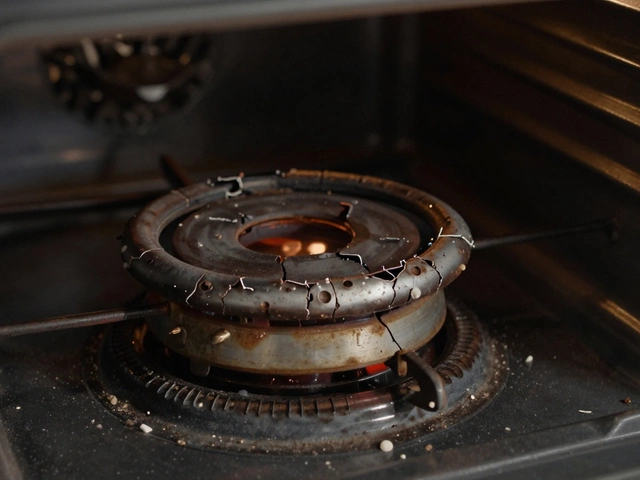When you hear someone talk about an "appliance job," they’re usually talking about work that fixes, installs, or services a household gadget. It could be a washing‑machine repair, a fridge that stopped cooling, or even fitting a new extractor fan. In short, any task that gets a broken or out‑of‑date appliance back to working like new falls under this umbrella.
Most appliance jobs involve three basic things: diagnosis, repair, and testing. A technician will first figure out what’s wrong – a faulty heating element, a leaky pump, or a dead thermostat. Then they replace or fix the part, tighten any loose connections, and finally run the appliance to make sure it’s humming correctly. Some jobs are quick, like swapping a broken oven element, while others, such as a full heat‑pump service, can take a few hours.
Start by checking if the pro is qualified for the specific appliance you own. Look for a Gas Safe certificate for boilers, an electrical inspection for ovens, or a specialist heat‑pump accreditation. Ask about their experience – a tech who’s fixed dozens of washing machines will know the common pitfalls. Get a clear quote before work begins; most jobs break down into labour, parts, and any call‑out fee. Don’t forget to ask about warranties on both parts and labour so you’re covered if the same issue pops up again.
Once you’ve hired someone, be ready to give them access to the appliance and any user manuals you still have. Clear the area around the unit, and if it’s a large piece like a fridge, make sure there’s enough room for them to move it safely. Good communication helps avoid surprises – let them know if the problem started after a power surge or if you’ve tried any fixes yourself.
Regular maintenance can save you from pricey emergency calls. A quick clean of fridge coils, a descaling of a dishwasher, or an annual boiler service keeps things running efficiently and extends their lifespan. Think of an appliance job not just as a fix, but as part of a routine care plan that keeps your home humming.
Bottom line: an appliance job is any professional work that gets a home gadget back in shape. Knowing what’s involved, how to pick a qualified tech, and what to expect on the day of the service makes the whole process smoother and cheaper. So the next time your oven stops heating, you’ll know exactly what kind of job you’re looking for and how to get it done right.

This article breaks down what 'appliance for a job' really means in the appliance service world. It explains common misunderstandings and clarifies whether it refers to equipment or applying for work. The piece gives real-world examples, explores the hiring process for technicians, and shares tips for both customers and job seekers. Straightforward info keeps things practical and easy to follow. If you've ever scratched your head at this phrase, you'll finally get the answer here.

Gas cooktops are an essential part of the modern kitchen, but like all appliances, they can encounter problems over time. This article provides valuable tips and tricks on how to diagnose and repair common gas cooktop issues such as faulty igniters, uneven flames, and gas leaks. With useful insights and step-by-step guidance, even the least experienced DIY enthusiasts can potentially save money and extend the lifespan of their cooktops. If the repairs are too complex or safety is at risk, it is always advisable to seek professional assistance.

Learn the proper term for someone who fixes ovens, how they work, skills they need, and why hiring a pro is a smart move. Helpful tips inside.

Deciding whether to repair or replace your hot water heater can feel overwhelming. This article explores practical considerations, including the age of the unit, repair costs, and long-term benefits. By understanding essential factors like energy efficiency and potential savings, homeowners can make informed decisions. Discover useful tips and interesting facts to help you choose the best course of action for your specific situation.

If your oven won't heat up, it's usually a simple fix-like a broken element, faulty thermostat, or blown fuse. Learn the most common causes and how to diagnose them yourself before calling a repair technician.

Extractor fans are a lifesaver when it comes to clearing out steam, smoke, and nasty odors, but many people forget they actually need a little love now and then. This article cracks open the question of whether extractor fans need maintenance, and if so, what kind and how often. We'll cover quick tips, warning signs, and busted myths around fan care. Get the straightforward facts (and a few surprises) about keeping your fan working its best. No nonsense, just super practical info you can use right now.